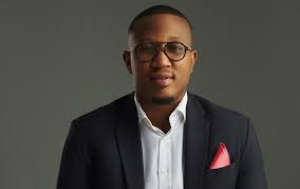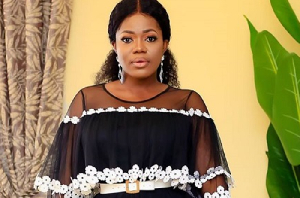By Kwesi Atta Sakyi 14th December 2014
Ghana as a concept existed in the past, it exists in the present, and it will supersede and succeed the present generation of Ghanaians. Ghana therefore as a sovereign nation, is a corporate entity in perpetuity. Governments and people of different political parties and hues or colorations will come and go, but Ghana as a nation-state will outlive and outlast them all.
This is where it behoves us all to be patriotic and altruistic by doing our best for present-day Ghana, for posterity to enjoy our rich heritage and contribution to the nation-building process. In this light, tribalism, nepotism, corruption, inordinate materialism, and greed become veritable enemies of national progress.
Ghana as a notion is characterized by a definite geographical area, a distinct set of people with a common history, distinct behaviourial characteristics, and unique cultural practices, among others. The concept of Ghana is tangible and intangible, spiritual, everlasting, temporal or secular, economic, and geographically contiguous in the West Africa sub-region.
Ghana is a member of the UN, AU, ECOWAS, Commonwealth, and ACP, and in general, a member of the comity of nations of more than 200 countries, and as such, we cannot inure ourselves from the effects of geopolitics. This essay is the second in the series to explore the issue of tribalism in Ghana from my personal perspective.
Nkrumah in his time aligned Ghana with the Non-Aligned Movement (NAM), and he peddled the concept of positive neutrality as Ghana’s foreign policy, and that policy was caught in the web and throes of the Cold War between the Western and Eastern Super-powers. Up to today, it is difficult to conjecture what Nkrumah exactly meant by positive neutrality, when visibly he was unashamedly pro-left.
His pro-Pan-African foreign policy centrality made Ghana a Mecca for African Freedom fighters, as evidenced by his calling the 1958 All Africa Conference in Accra, one year after Ghana’s independence. Nkrumah was non-tribal, and he extended that beyond Ghana’s borders by embracing Africans from all over to come and live in Ghana.
The 1958 Conference in Accra was to serve as a catalyst to realize Nkrumah’s dream which was unequivocally articulated in his famous declaration that,’ the independence of Ghana is meaningless unless it is linked with the total liberation of Africa’. That onerous burden he tasked Ghanaians with resulted in a heavy cost in terms of assisting other African countries, and earning the wrath of our enemies who caused the world cocoa price to plummet, adversely affecting our earnings from cocoa. They also applied severe economic sanctions on us, from which we have not recovered. Do you remember SAP, HIPC1, HIPC2, EPRS, among others?
Pan-Africanism was later to be jettisoned by the successive pro-Western governments of the Military, namely the NLC, NRC, SMC1, SMC2, and K.A. Busia’s Progress Party. Busia rooted for insularity, pro-west stance, and alliance with conservative forces on the African continent, which had their origins from the Monrovia Group. Earlier on, Nkrumah before his overthrow on 24th February, 1966 had taken Ghana to the radical Casablanca Group, aligning himself with presidents such as Modibo Keita, Sekou Toure, Ahmed Ben Bella, Gamel Abdul Nasser, Julius Nyerere, among others. It is true to state that Nkrumah was a Pan-Africanist but not a tribalist. His wide focus on African issues made Ghanaians also adopt a wider perspective, thus avoiding tribal issues
I encounter acrimonious tribal sentiments when I visit comments on Ghanaweb, but the situation on the ground in Ghana is totally different, with many Ghanaian tribes living in cordial and harmonious relationships. It looks like those who fan tribal sentiments, and trade tribal insults on the web, hide in cyberspace to engage in their nation-wrecking activities, and they dent our Ghanaian image on the web.
After Nkrumah, some Ghanaians have adopted a particularistic culture of basing everything on narrow relationships rooted in tribe, homeboyism, ethnicity, nepotism, and who you know rather than what you know. In contrast, in the more progressive western cultures, we find that they ply the rational and fair Universalist culture based on rules, procedures, laws, and achievement. They eschew progress based on ascription or tribal and familial relationships, choosing to deal with people on merit.
Our obsession with tribalism is due to greed, self-insecurity, and inordinate materialism. All this parochialism and political/bureaucratic corruption occurs because so many Ghanaian educated but unrefined individuals have not acquired proper and deep education which has philosophical and classical underpinnings. This calls for soul-searching among some of our so-called leaders.
In this last series on tribalism, I will give practical examples of harmonious tribal living from my own little experiences. I hope I will not invite vitriolic diatribe from the tribal and dyed-in-the-wool political gymnasts, who clutch at the least straw to promote their hidden tribal and political agenda.
However, we can categorically observe and state that the tribal embers in Ghana were stoked and fanned by J.J. Rawlings during his 19 years khakistocratic rule when most government outfits were mainly populated and headed by Ewes. Kufuor, who should have known and done better, did worse things by appointing his brother as Minister of Defence and other relatives into positions in government. I wonder why leaders choose to behave like this when in fact we need every Ghanaian to come on board in the nation-building exercise. To me, all I know is that Ghana is for all Ghanaians and not for Ashantis or Ewes or Fantes or Gonjas or Dagombas, or Nzemas. We should borrow a leaf from the Rainbow concept of South Africa.
Since the undoings of JJ and Kufuor, this tribal kabalistic syndrome has come to stay in our Ghanaian politics, with John Mahama being the worst culprit in populating government mostly with people of Northern origin. This is very sad indeed, because nation-building should be based on meritocracy and not mediocrity. I wish our leaders would borrow a leaf from Nkrumah.
We see worse tribal inclinations from comments on Ghanaweb. Do we then conclude that we have some cranky and loony Ghanaians who form a chunk of the population on Ghanaweb? Many of them are chauvinistic tribalists, and they are veritable miscreants and mischief-makers.
In the Kwame Nkrumah era when we went to boarding houses in colleges and secondary schools, we travelled long distances to get education. We were a mixture of students from different tribes and nationalities. In the mid-60s, my best friends at college were Ewes, Nigerians, Ahantas, and Nzemas. At Legon, my best friends were Ewes. Though I am Effutu from Winneba, some of my current best friends in Ghana are Nzemas, Ewes and Fantes.
Only people who are parochial engage in tribalism. Unity in diversity should be our motto because in our otherliness, we derive strength. Each tribe in Ghana has something special to contribute to the national weal and tapestry. Dr Kwegyir Aggrey of old Achimota in the 1910s and 20s, admonished peaceful co-existence between blacks and whites, pointing to the black and white keys of the musical keyboard as necessary complements for producing harmonious, melodious, and mellifluous music. We should extend the same idea to tribal relationships in Ghana.
The same goes for the microcosm called Ghana. We cannot have a strong Ghana made up of just a handful of tribes. The greater the diversity and variety of tribes in Ghana, the better the national symphonic and symbolic music will be. It is like music from other complex musical instruments such as the lyre/lute/harp, xylophone, and the Malian traditional musical instrument, the incomparable Kora.
When you hear music from the Kora or the harp, you can be charmed away into fairyland. This is because the musical scale is vast and diverse, creating a scale beyond that which is usually found in western music. This is why Malian music maestros are deemed to be the best musicians in the world.
Perhaps, comparable to those Sirens, the enchantresses in ancient Greek mythology who wanted to charm and seduce Odyssey’s men but their ears being waxed, and Odyssey being tied fast to a mast, he used his guile to prevail and they sailed away from one of the myriads of tests which stretched their adventure beyond breaking point. He escaped from Calypso, Circe, and other women temptresses.
Inter-marriages and work-related chemistry have bonded Ghanaians together, thus blurring tribal boundaries. Sometimes people refer to other tribes as being inward-looking or xenophobic. Aren’t we all human to identify spontaneously with one of our own? If I meet an Effutu anywhere in the world, I am bound to assure myself that I have met one of my own by peeling off into our local patois, and that should not look offensive or inward-looking to a non-Effutu Ghanaian onlooker.
Those tribes which have been accused of being inward-looking in Ghana are those with strong traditions, and I think levels of education count very much in bringing about cultural diffusion, while at the same time, too much imbibing western education and traditions can make one an anomie or lost in transition among one’s own kith and kin.
Some tribes believe in ascription while others believe in achievement, hence the differences in tribal perceptions and attitudes with regard to their interactions.
Tribal stereotyping is dangerous for a nation because it creates closed minds and friction. I am an Effutu from Winneba but I have nieces and nephews whose fathers are Ashanti, Akyem, Ewe, Grunshie, Ga, Krobo, among others. Some of them have their fathers hailing from closer home, among the Enyan, Agona, Nkusukrum, among others.
Five of my sisters speak Ga flawlessly, and my late mother and elder brother spoke Krobo fluently. One of my elder brothers settled and married among the Krobo at Akuse, and one of my maternal cousins settled at Agotime-Kpetoe in the Volta Region. I myself, I know a few words in Ewe, Ga, Nzema, Hausa, and Sefwi.
In the early 70s, while teaching at Nsuekyir near Winneba, I stayed in a house whose backyard outhouse housed some Dagarti people. They were about five families. They used to brew pito (a brown local drink from millet) and they had many dogs which they used for hunting. Our pan latrine was located where they were, and always I had to pass through their cemented yard to go and use it.
They gave me so much respect, and up to today, whenever we meet, we stop to greet each other and relive those bygone days. When I taught at Twifu- Kotokyi-Hemang-Denkyira near Kyekyewere and Agona on the Nyenase-Dunkwa-on-Offin road, I enjoyed my teaching stint there because the locals appreciated my hard work and commitment to work in improving the knowledge of my pupils. Some of my pupils were Ewe who had to cross the mighty Pra river every day to school and back.
They used to bring me a lot of cassava, yams, eggs, plantains and cocoyam, which their parents sent to me in basket loads, yet I had not met those parents of theirs. From those boys, I learnt a few Ewe words. At Sefwi Wiawso Secondary School where I did my National Service, one of the grown up senior form five boys, called Lavoe, was like my lieutenant and bodyguard. I once shared a flat at Winneba with an Ewe family, with my neighbor, one Mr Kofi Doe from Peki. I still remember her daughters’ names as Akpene and Kafui. We lived peacefully and had a wonderful time together. That was in the early 70s.
Then in 2003, while in Ghana for a year, my wife had rented a place where we shared the house with a Krobo lecturer and his family. The man is still at the University of Education, Winneba, and we still are friends. In 1980 at SWESCO, I shared a flat for 1 year six months with an Akwapim man called Mr Asante-Ankwa. All these examples show how united we are in our diversity. Winneba has many women who have fallen for men from all over Ghana who come for tertiary education in the town. The same goes for every Ghanaian town.
Again, in 1979, after graduating from Legon, I went to do National Service at Sefwi Wiawso Secondary School. There again, as a Boarding master, I did my best among the students, despite wrangling between the outgoing Headmaster, one Mr W.C. Fiati on the one hand, and on the other hand, the Assistant Headmaster, Mr Kofi Boakye, and Mr Oteng, the Senior Housemaster. We had staff like Mr Danquah, Mr Owusu Acheampong, Mr Benyah, Dr Eminson, Mrs Eminson (VSOs), Mr Ayimadu, among others. The tension in the school, (SEWASS), and among the townsmen was purely tribal but I kept a neutral profile. It was alleged that Nana Aduhene and his town elders were against the outgoing head. The school was temporarily put under the administration of the DEO, one Mr Taylor. Not long after, we had the June 4th Revolution of Rawlings.
In 1980, I transferred to Agona Swedru Secondary School (SWESCO) where I did wonders among the Sixth Form classes, teaching Economics, Geography, General Paper, among others. Our staff had many tutors from all over the tribes in Ghana, with names such as Kanfra brothers (Maths/Physics), Andersons (Maths/Maths), Sam Arthur (Physics), Adu Amankwaa (Accounts), Quaicoo (Economics), Paul Alwise Dennis (Chem-Bio.), Adjei ( Govt.), Otchere (Bio.), Wright (Religions), Bedi (Maths), Ansong (Hom. Econ), Koram ( Hom. Econ), Brown (Bio), Kojo Taylor (Eng. Lit), Baba Hussein (Maths), Bamfo, Nana Agyaakwa (Eng Lang), Appiah (Drama/Eng Lang), Seth Adu (Geog), Aboagye, Buadu( Agric), Asante-Ankwa (Eng Lang) Asare (Hist.), Eric Ansah Otu ( Headmaster/Hist), Sam Parry (Assist. Headmaster/Geog), Kittoe,(Gen Sc.), Aglah (French), Kpodo (French), Addison (Ghana Lang/Fante), K.A. Sakyi ( Econ/Geog/Gen Paper), among others. I still recall a few names among my Upper Sixth Form students as Boadi, Tandoh, Aubynn, Essuman, among others. That was in 1980.
In conclusion, I think in modern day Ghana, the concept of tribe is slowly dying a natural death because of socio-politico-economic dynamics, social engineering, intermingling and inter-marriages, and internal migration. Right now in Winneba, many people of other tribes have made their homes there because of the welcoming attitude of locals and the blossoming of tertiary institutions in the locality. So it is with any other town in Ghana, as we have all grown to outgrow our tribal proclivities as the pace of modernity gains momentum. We have become one large family of Ghanaians, whether at home or abroad. So those with tribal diatribe, take note. I shall return (Wahihi).
Contact: kwesiattasakyi449@gmail.com
Opinions of Thursday, 18 December 2014
Columnist: Sakyi, Kwesi Atta














